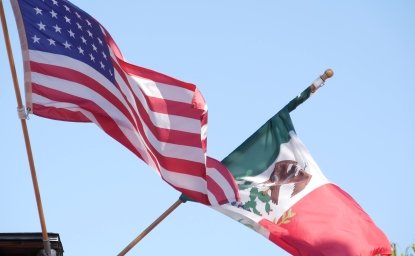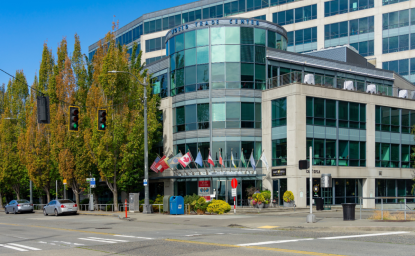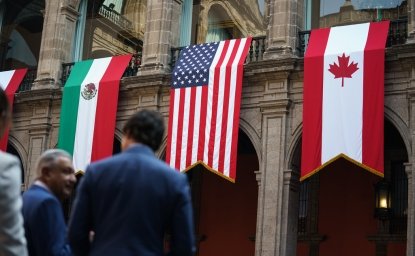On January 12, Canada will welcome Japanese Prime Minister Fumio Kishida for its first visit by a sitting Japanese head of government in almost four years. The world has changed significantly since the late Shinzo Abe visited Ottawa in April 2019: China’s power in the Indo-Pacific has increased under an emboldened Xi Jinping; the United States ousted former president Donald Trump and elected Joe Biden to the White House; and Russia launched an illegal, ongoing invasion of Ukraine. Looming over these developments is a global pandemic that revealed widespread vulnerability to biological threats and forced countries to reevaluate both public health policy and supply chains for critical goods.
In that time, Canada has sought to reassert its status as an Indo-Pacific state. Its exclusion from two major Indo-Pacific institutions – the AUKUS Security Pact and the Indo-Pacific Economic Framework (IPEF) – were indications that the United States and other allies did not consider Canada to be a major player in the region. Ottawa pushed back against that perception, first by highlighting its role in existing institutions such as the Comprehensive and Progressive Trans-Pacific Partnership (CPTPP), then by gaining U.S. support for admission to the IPEF, and finally by launching a comprehensive, funded Indo-Pacific Strategy in November 2022.
Prime Minister Kishida’s visit to Canada, the first by an Asian head of government since the launch of the Indo-Pacific Strategy, is an early test of whether Ottawa can translate its ambitious Strategy into action.
Canada and Japan have ample reason to increase bilateral cooperation and an existing framework to build upon. The Canada-Japan Joint Action Plan, launched by foreign ministers Melanie Joly and Hayashi Yoshimasa during a bilateral visit to Tokyo in October 2022, outlines six shared priorities with corresponding action items. These include commitments to maintaining the rule of law, working towards energy security, and promoting free trade, all of which are likely to be raised when the two prime ministers meet.
While Canada and Japan may seem to be unlikely partners in a landscape of international trade that is increasingly inclined towards nearshoring, Japan is Canada’s fourth largest partner in two-way merchandise trade. In 2021, Canadian exports of minerals, oil, pork, and softwood lumber to Japan totalled $14.5 billion, in exchange for the import of $15.5 billion of Japanese auto parts and machinery. Canada and Japan are also two of the largest economies in the CPTPP, which comprises 11 countries with a combined GDP over $10 trillion.
Strong Canadian-Japanese economic cooperation extends beyond research and innovation. The Canada-Japan Joint Committee on Science and Technology (CJJC), created in 1986, meets biennially to discuss advancements in emerging technologies of interest such as nanotechnology, quantum computing, and artificial intelligence. In 2019, Canada’s National Research Council (NRC) signed a memorandum of understanding with Japan’s Advanced Telecommunications Research Institute (ATR) that invited Canadian companies to join ATR’s business and startup support program, Keihanna Global Acceleration Program Plus; further, NRC opened an office in Tokyo to help facilitate collaboration between Canadian and Japanese research entities.
Another crucial topic of discussion this week between PM Kishida and PM Trudeau will be whether Canada can help Japan meet its demand for natural gas. After overtaking China in 2022, Japan became the world’s largest importer of LNG, the majority of which comes from Russia. In order to meet demand from Japan and other countries looking to divest from Russian supplies, Canada would have to significantly bolster export capabilities. Increasing this capacity is dependent on the completion of the massive LNG facility under construction in Kitimat, British Columbia, however, there are competing proposals for the construction of export facilities on the east coast of Canada. While Japan would benefit from the continued expansion of Canadian LNG exports, Canada may not have as much to gain from doing so in the short-term.
On the topic of defense, Japan continues to find itself in a crucial moment to strengthen its positionality in security partnerships. In addition to the looming threat of China’s power and in the shadow of Russia’s war on Ukraine, Japan has faced more direct challenges posed by North Korea’s firing of intercontinental ballistic missiles (ICBM) into Japanese and South Korean airspace. The threat of these destabilizing acts has increased pressure on Japan’s security strategy and emphasized the importance of allied defense partnerships in the current geopolitical climate.
In response, Canada and Japan have opened negotiations on a bilateral General Security of Information Agreement (GSOIA) that would serve as a legal framework for intelligence sharing between the two states. Both countries have expressed interest in regularizing the joint naval exercise KAEDEX (a play on the Japanese word for maple, kaede), which involves warships from the Royal Canadian Navy and Japanese Maritime Self-Defence Force. The exercise, most recently conducted in 2019, aims to improve and maintain interoperability between Canadian and Japanese warfighting forces in the Indo-Pacific environment. Canada has also resolved to seek membership in the ASEAN Defence Ministers Meeting Plus and promised that its Defense Policy Update will reflect the regional priorities outlined in its Indo-Pacific Strategy.
In December 2022, Japan published a redefined National Security Strategy, in which PM Kishida’s government asserted its commitment to increase defense spending which is now set to reach 2% of GDP by 2027. If Canada wants to be considered as a serious partner for Japan, as well as other Indo-Pacific nations, in the realm of defense, the visit of PM Kishida may also probe the ongoing Canadian domestic debate as to whether Canada itself should increase its defense spending to the 2% threshold. Japan’s National Security Strategy hints that it will look to allies and partners to coordinate this increase and strengthen its defense capabilities; if Canada remains unwilling to commit to 2%, can (and will) it be considered as a reliable defense partner for Japan?
Following his visit to Ottawa on Thursday, Prime Minister Kishida will travel to Washington to meet with U.S. President Joe Biden. Japan’s recently published National Security Strategy hails the Japan-U.S. alliance as “the cornerstone of Japan’s national security policy.” While Canada may not aspire, nor be able, to be deemed such a cornerstone as the United States is by its allies, there is an opportunity in the current geopolitical moment for it to solidify itself as a contributing ally in defense, trade and economic partnership with Japan.
Given the sequence of the meetings, PM Kishida may look to Prime Minister Trudeau for an indication of where the priorities of the Biden administration stand, following the recent bilateral meetings between Canada and the United States in the wings of the North American Leaders’ Summit.
With opportunities to expand collaboration in trade, energy, and security, Canada should be prepared to use Prime Minister Kishida’s visit to showcase its willingness to invest in bilateral initiatives with Indo-Pacific allies. Japan, in turn, should encourage Canada to follow through on its commitments in the Indo-Pacific Strategy and Canada-Japan Joint Action Plan such as continued progress towards the signing of a GSOIA and tangible efforts to make Canada a reliable and secure energy partner for North Pacific states. Both countries stand to gain from establishing closer ties in the face of geopolitical instability that threatens shared national interests; their success, or failure, in doing so will have implications for the outcome of Canada’s Indo-Pacific ambitions.
Authors


Research Director, Washington Forum on the Canadian Economy

Canada Institute
The mission of the Wilson Center's Canada Institute is to raise the level of knowledge of Canada in the United States, particularly within the Washington, DC policy community. Research projects, initiatives, podcasts, and publications cover contemporary Canada, US-Canadian relations, North American political economy, and Canada's global role as it intersects with US national interests. Read more

Explore More
Browse Insights & Analysis
Navigating US-Mexico Relations: Opportunities Amid Challenges



